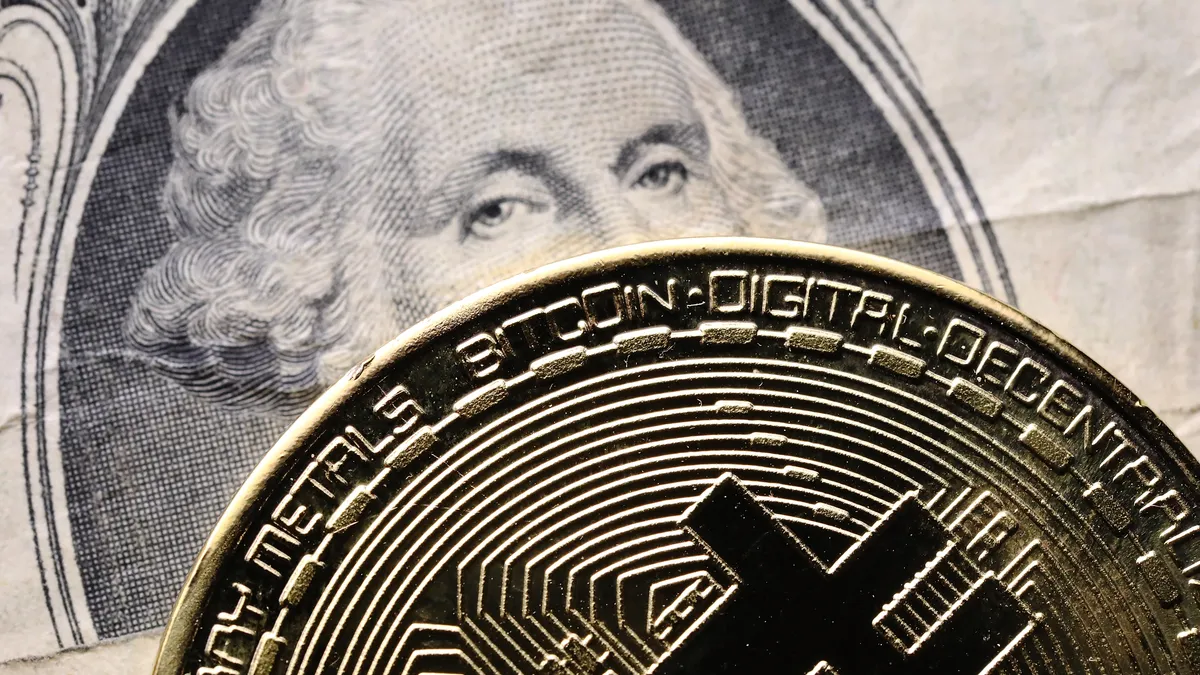UPDATE: July 9, 2021: Santander told customers that, starting Thursday, it would stop payments from their accounts to Binance but would continue to let them withdraw cash from the exchange, the Financial Times reported.
“Keeping our customers safe is a top priority, so we have decided to prevent payments to Binance following the FCA’s warning to consumers,” Santander said. “In recent months, we have seen a large increase in UK customers becoming the victims of cryptocurrency fraud.”
Binance said Santander’s move "disappointed" the exchange, adding that it takes its compliance obligations and the security of its users’ money “very seriously,” according to the Financial Times.
UPDATE: July 6, 2021: Barclays on Monday told its U.K. customers it has stopped them from using credit and debit cards to make payments to Binance, the Financial Times reported.
“This action does not impact on the ability for customers to withdraw funds from Binance,” the bank said.
NatWest said last week it had blocked payments to “a small number of cryptocurrency asset firms where we have seen particularly significant levels of fraud-related harm for our customers,” the outlet reported.
HSBC last week said it would not comment on individual crypto exchanges but was “closely following developments and changing regulation in these markets.”
Lloyds said it did not allow crypto payments on credit cards and subjected all transactions to “robust fraud monitoring processes . . . on a case-by-case basis” and that this approach applied to Binance.
Santander said it was “reviewing” its position on “payments to unregulated cryptocurrency exchanges.”
UPDATE: June 29, 2021: Twitter users who said they were British customers of Binance complained Tuesday they were frozen out of the U.K.’s Faster Payments network and unable to withdraw pounds due to “maintenance,” according to the Financial Times.
Binance said the Faster Payments withdrawals service was restored late Tuesday afternoon. However, deposits using cards and Faster Payments — and withdrawals through cards — continued to be down later Tuesday.
Dive Brief:
-
Binance, the world’s largest cryptocurrency exchange by trading volume, has until Wednesday evening to confirm it has complied with an order from the U.K.’s leading financial regulator to stop all regulated activities in Britain.
-
U.K. customers can still use the exchange’s non-U.K. operations for activities the Financial Conduct Authority (FCA) doesn’t directly regulate, such as buying and selling cryptocurrency holdings. "The FCA U.K. notice has no direct impact on the services provided on Binance.com," Binance said Sunday in a tweet, calling the affected subsidiary a "separate legal entity." "Our relationship with our users has not changed," Binance said.
- Binance Markets Ltd., the company’s U.K. arm, applied to be registered with the FCA but withdrew its application May 17 in relation to 5MLD, an anti-money laundering directive, after what the regulator called "intensive engagement." A "significantly high number of cryptoasset businesses" are not meeting necessary anti-money laundering standards, an FCA spokesperson told The Wall Street Journal. "Of the firms we’ve assessed to date, over 90% have withdrawn applications following our intervention."
Dive Insight:
By Wednesday evening, Binance Markets must confirm to the FCA that it has removed all advertising and financial promotions. The regulator also told the company to secure and preserve all records relating to U.K. consumers, so they "can be provided to the FCA, or to a person named by the FCA, promptly on its request," according to Bloomberg.
Binance Markets must also add a notice in a prominent place on its website and apps displaying the following text: "BINANCE MARKETS LIMITED IS NOT PERMITTED TO UNDERTAKE ANY REGULATED ACTIVITY IN THE U.K. Due to the imposition of requirements by the FCA, Binance Markets Limited is not currently permitted to undertake any regulated activities without the prior written consent of the FCA. (No other entity in the Binance Group holds any form of U.K. authorization, registration or license to conduct regulated activity in the U.K.)."
Binance Markets — because it bought a financial company that was already registered with the FCA — had the regulator’s permission to offer consumers investment services in traditional currencies, the Financial Times reported. Binance Markets was established a year ago as part of a plan to launch Binance UK, which would have been "ring-fenced" from the parent company’s global operations, according to the publication.
The root of the regulator's issue with the exchange may be not in the trading of cryptocurrencies themselves but in their derivatives. In recent months, for example, Binance has started to offer "stock tokens," digital currency units that track the value of stocks. The FCA last October banned retail investors from trading cryptocurrency derivatives, saying they had no value for ordinary investors.
The FCA in January warned crypto asset investors they should be prepared to lose all their money. The regulator on Saturday warned consumers to be wary of online advertisements promising high returns on crypto investments.
The U.K. isn’t the only country taking a hard line on Binance. Japan’s Financial Services Agency warned Friday that it was offering crypto services without being registered. Germany’s financial watchdog warned investors in April that Binance had probably violated securities rules over its launch of trading in stock tokens. And the Commodity Futures Trading Commission is investigating whether the company allowed Americans to make forbidden bets. The Justice Department and Internal Revenue Service are also probing the exchange, though they haven’t accused it of wrongdoing, Bloomberg reported.
Some market watchers are taking the increased scrutiny as a sign the crypto space is maturing. "These events prove that while blockchain may be decentralized and borderless, the technologies built to support open and public blockchains are not," Nick Saponaro, co-founder of the San Diego-based Divi Project, told Bloomberg.
Binance, in its Twitter post, said it takes a "collaborative approach in working with regulators and we take our compliance obligations very seriously. We are actively keeping abreast of changing policies, rules and laws in this new space."
Binance recorded $1.5 trillion in crypto trading volumes last month, the Financial Times reported.














